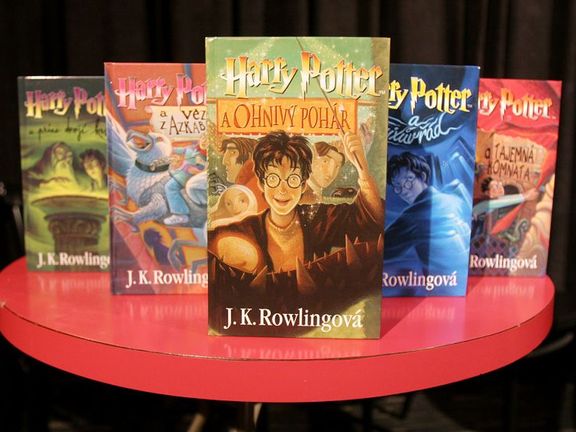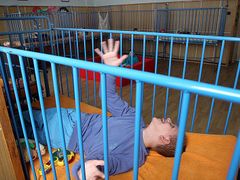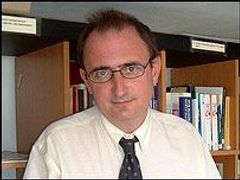London - The world-famous author of Harry Potter novels, JK Rowling hired a Czech psychiatrist to try to improve living conditions of children kept in state institutions across Eastern Europe.
The psychiatrist, Jan Pfeiffer, will start in February as the new deputy director of the charity, Children's High Level Group, founded by JK Rowling in 2005. He will be promoting its goals in Central and Eastern Europe.
"There are many not-for-profit organizations around trying to change the childcare situation but their efforts mostly go down the drain because the governments don't care," Mr Pfeiffer told Aktuálně.cz. "It will be my task to work with the individual governments in a diplomatic way to achieve change."
One of the mission's goals thus will be to improve conditions of disabled children locked up in the Czech social care homes.
Certified hero
In 2004, Mr Pfeiffer was declared one of the Time magazine heroes for his fight against the use of metal cages around beds and cots in the institutions. He has been working in the UK for almost three years.
His team will first go to Bulgaria where the government keeps refusing both criticism and offers of help.
Nevertheless, it is his home country, the Czech Republic itself, which became a target of international criticism lately.
Last week, the BBC carried an investigative report about disabled persons in Czech social care homes showing they are still being denied their basic rights.
A day later, Aktuálně.cz published a report and pictures from one of the care homes visited by the undercover team of British journalists.
The pictures showed both children and adults locked up in cots and beds surrounded by metal bars, with neither free choice nor freedom of movement.
"Cots with cages are not a real problem here," says Mr Pfeiffer. "The important thing is the whole system is wrong. This is just a tip of the iceberg."
Why are they fighting back?
Mr Pfeiffer says he was surprised by the defensive reaction from Czech politicians. "The government should realise that the criticism has its points," he says. "Then it should start thinking about why the children are being kept there and of better ways of solving the problem."
According to the new representative of the charity, it will be his task to persuade political leaders in the area that Children's High Level Group, co-founded by MEP Baroness Emma Nicholson, is not there to criticise but to offer full and specific help with changing the age-old practice of treating disabled people the way they are treated.
In this way, the charity would be also ready to help in the Czech Republic. "We are able to offer our know-how in de-institutionalizing childcare," Mr Pfeiffer said. "We've met for the first round of talks last year."
JK Rowling in the Balkans
Already JK Rowling's charity can show some initial successes in several countries.
The biggest change it inspired so far took place in Romania where more than ten thousand children returned from the institutions to their parents or relatives.
A change in the law in Romania also means it is now not possible to institutionalize children under two years old.
"Romania was motivated by its entry into the European Union," Mr Pfeiffer explains the readiness of the country to change its practices. "We now expect the same motivation to affect Croatia and Montenegro."
Moldavia and Baltic states also showed interest in help from the charity.










